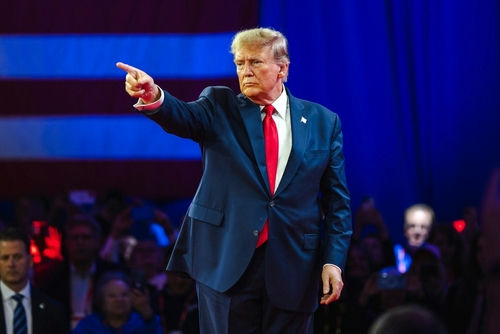For the first time since 2020, National Guard troops are openly patrolling Washington, D.C., with loaded service weapons—a move that has ignited debate over public safety, federal power, and the future of constitutional order in the nation’s capital.
Trump Administration Responds to Surging Concerns in D.C.
On August 22, 2025, Secretary of Defense Pete Hegseth signed an unprecedented order authorizing National Guard troops to carry their service weapons while patrolling Washington, D.C. This escalation follows President Trump’s August 11 executive order declaring a state of emergency in the capital after repeated reports of crime and homelessness. The new federal action overrides previous Pentagon guidance, which had initially stated that troops would not be armed, and comes as National Guard deployments in the city expand to nearly 2,000 troops from D.C. and several other states. The arming order, described as a response to persistent public safety threats, is the first of its kind since the riots and unrest of 2020.
This decision has sparked immediate debate between federal officials, local D.C. authorities, and civil liberties advocates. While state governors from South Carolina, West Virginia, Ohio, Mississippi, Tennessee, and Louisiana have openly supported the deployment—sending additional Guardsmen at the Trump administration’s request—D.C. Mayor Muriel Bowser declined to comment, underscoring the city’s limited influence over National Guard actions. The deployment draws on unique legal authority: in D.C., unlike most of the country, command of the National Guard lies directly with the President and Secretary of Defense, not local officials. This distinction gives the federal government sweeping powers to intervene.
Historical Precedent and Federal-State Tensions
Historically, National Guard deployments in Washington, D.C., have occurred during moments of national crisis or civil unrest. Similar tactics were used in 2020 following the death of George Floyd, and again during the 2021 Inauguration and the January 6 Capitol attack. However, the decision to arm Guard troops—especially outside of riot conditions—sets a new precedent. Critics argue this approach risks blurring the line between military and civilian policing, and could erode the city’s fragile home rule. Supporters, on the other hand, frame it as a long-overdue response to rising lawlessness and a necessary restoration of order after years of leftist policies they believe have fostered chaos and endangered law-abiding Americans. The move also signals a return to strict federal oversight after years of perceived inaction and local defiance of federal priorities.
Many D.C. residents and businesses are watching closely, worried about both personal safety and the implications for civil liberties. The presence of armed troops on city streets is a powerful symbol—one that some see as reassuring, while others fear it could fuel confrontations or protests. The deployment’s economic impact is not trivial either: increased security costs, potential disruptions to commerce, and heightened anxiety among vulnerable populations, including the homeless, are all possible consequences. Federal officials counter these concerns by pointing to persistent crime and the need for visible deterrence, even as some data suggest the threat may not fully match the scale of the response.
Expert Perspectives and Community Impact
Security analysts emphasize that arming National Guard troops for domestic law enforcement remains extremely rare and carries significant risks, including the potential for escalation and unintended incidents. Civil liberties advocates are voicing alarm about the militarization of D.C. and the precedent set for future federal intervention in local affairs. Academic experts highlight constitutional questions, given D.C.’s unique status and the direct authority exercised by the federal government. Public policy leaders also question whether military deployments address the roots of crime and homelessness or simply treat symptoms while risking damage to public trust.
Short-term impacts include a stronger military presence on city streets, which could deter certain crimes but may also increase tension between federal and local authorities. In the long-term, this move could pave the way for more frequent federal intervention in local policing—an outcome that alarms many in the D.C. community who value home rule and fear the erosion of self-government. As debates play out, it is clear that the Trump administration’s approach prioritizes order and security, even at the cost of expanding federal reach and authority in America’s capital.
Hegseth authorizes National Guard to bear arms in D.C. https://t.co/zhHFvX52H7
— One America News (@OANN) August 22, 2025
While supporters hail this as a victory for common-sense law enforcement and a restoration of safety, critics argue it marks a dangerous step toward normalizing military involvement in American civic life. The debate continues as lawmakers, security experts, and D.C. residents reckon with the implications for the city’s future and for the balance between security, liberty, and local control.
Sources:
Axios: Hegseth National Guard Carry Arms Washington
Military Times: Hegseth Signs Memo Authorizing Arming of Guard in DC
Army.mil: Hegseth, Senior DOD Officials Visit Guardsmen at DC Armory
Click this link for the original source of this article.
Author: Editorial Team
This content is courtesy of, and owned and copyrighted by, https://ourpatriot.com and its author. This content is made available by use of the public RSS feed offered by the host site and is used for educational purposes only. If you are the author or represent the host site and would like this content removed now and in the future, please contact USSANews.com using the email address in the Contact page found in the website menu.





